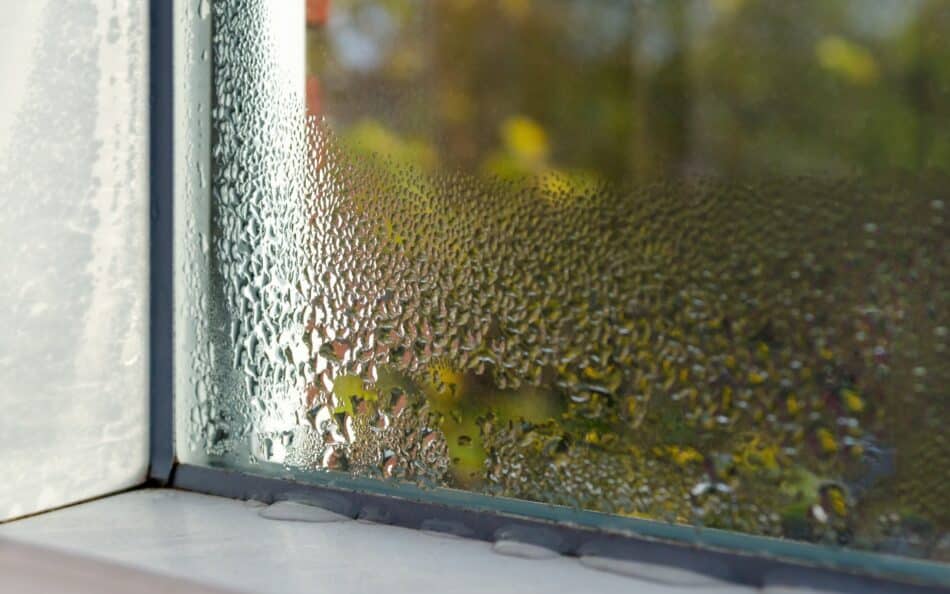How Humidity Affects AC: Florida Homeowner’s Guide to Moisture Control

In Florida, the heat can be intense, but it’s the humidity that truly impacts your air conditioning system’s performance. If you’ve ever wondered how humidity affects AC, you’re not alone. Excess moisture in the air forces your system to work harder, causes inconsistent cooling, and can even lead to costly repairs.
At Cusano Air Conditioning, we’ve helped thousands of Florida homeowners manage high humidity levels inside their homes. From inconsistent airflow to foggy windows and mold buildup, the symptoms are real and avoidable. In this guide, we’ll explore how Florida’s humid climate stresses your HVAC system and how to fight back with better solutions.
What Is Humidity, and Why Does It Matter?
Humidity refers to the amount of water vapor in the air. Florida’s subtropical climate means we often experience relative humidity levels between 60% and 90%, especially during summer and rainy seasons.
Your air conditioning system is designed to do two things: cool the air and remove moisture. When humidity is high, your AC works much harder to pull water vapor from the air before delivering cooled, dehumidified air into your home.
Signs That Humidity Is Affecting Your AC System
Excess humidity doesn’t just make you feel sticky and uncomfortable—it can signal real issues with your system’s performance. Here are some common signs:
- Warm or clammy indoor air, even with the AC on
- Foggy windows or moisture buildup on walls and ceilings
- Musty odors indicate potential mold or mildew growth
- AC system running constantly but failing to lower the temperature
- Higher energy bills despite routine use
If you’re experiencing these symptoms, it may not be a failing AC system—it could be humidity overloading its capabilities.
How Humidity Affects AC Performance
Let’s dive deeper into exactly how excess humidity stresses your air conditioner:
1. Increased Workload and Energy Use
When the air is full of moisture, your AC must work longer to remove it. That extended runtime leads to increased wear and tear, more frequent repairs, and higher electricity bills.
2. Reduced Cooling Efficiency
High humidity makes the air feel warmer than it is, which can cause your thermostat to read cooler than you actually feel. As a result, your AC may run longer than necessary—or not long enough to fully dehumidify the space.
3. Condensation and Moisture Damage
Excess humidity can lead to water collecting inside your air handler or ductwork, especially if drainage lines are clogged or coils are dirty. Over time, this can cause water damage or lead to mold and mildew growth.
4. Indoor Air Quality Problems
Mold spores, dust mites, and bacteria thrive in moist environments. Poor humidity control can exacerbate allergies, respiratory issues, and general discomfort.
How to Help Your AC System Handle Florida Humidity
Luckily, there are several ways to support your AC system and reduce the strain caused by excessive humidity.
Upgrade to a Properly Sized System
Many older homes in Florida are equipped with AC units that are too large or too small for the space. Oversized systems cool the air quickly but don’t run long enough to dehumidify effectively. A correctly sized system ensures balanced cooling and moisture removal.
Install a Whole-Home Dehumidifier
For Florida’s extreme moisture levels, your AC alone may not be enough. A dedicated dehumidifier works alongside your HVAC system to remove excess moisture, making your indoor environment more comfortable and your AC more efficient.
Schedule Routine Maintenance
Regular maintenance is essential for keeping your AC system in top shape. This includes:
- Cleaning the evaporator coils
- Checking and clearing drainage lines
- Replacing air filters regularly
- Inspecting refrigerant levels
- Calibrating the thermostat
Our team at Cusano Air Conditioning offers seasonal tune-ups that ensure your system is dehumidifying effectively and not being overworked by Florida’s weather.
Use Smart Thermostats and Hygrometers
Smart thermostats can help balance indoor humidity and temperature settings more efficiently. A hygrometer can also help you monitor relative humidity levels inside your home so you know when it’s time to take action.
Stay Comfortable Year-Round
High humidity is a fact of life in Florida—but it doesn’t have to take a toll on your comfort or your cooling system. Understanding how humidity affects AC performance is the first step toward a healthier, more efficient home.
If you’re dealing with humidity-related issues, the team at Cusano Air Conditioning is here to help. From system upgrades and dehumidifier installations to expert maintenance, we have the tools and experience to help you reclaim control over your indoor environment.
Schedule a Humidity Assessment Today
Contact Cusano Air Conditioning to schedule a humidity control consultation or AC system inspection. We proudly serve homeowners across Broward County with personalized, energy-efficient HVAC solutions that fight back against Florida’s toughest climate challenges.